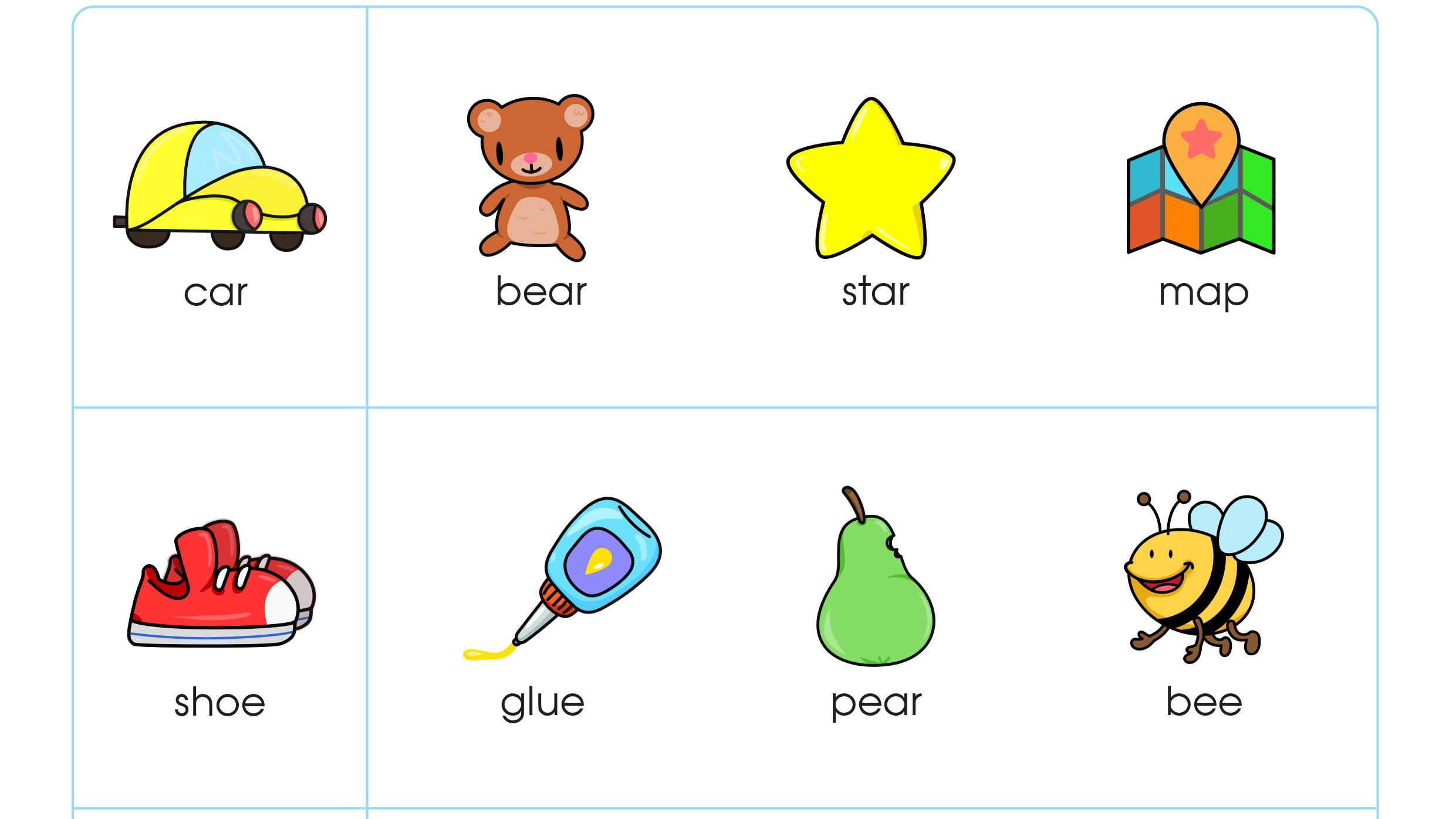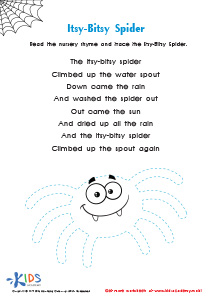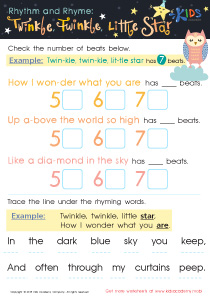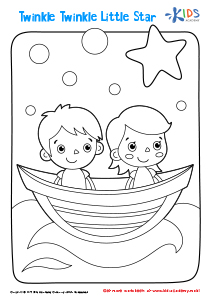Nursery Rhymes Worksheets for Ages 3-7
5 filtered results
-
From - To
Discover the joy of learning with our "Nursery Rhymes Worksheets for Ages 3-7" at Kids Academy! Designed to captivate young minds, our collection features a delightful mix of classic and contemporary nursery rhymes. Each worksheet is crafted to enhance literacy, improve fine motor skills, and boost memory through fun and engaging activities. Perfect for both learning at home and in the classroom, these printables help children develop an early love for reading and rhythm. Join us today and make learning an exciting adventure for your little ones with our vibrant, educational nursery rhymes worksheets!
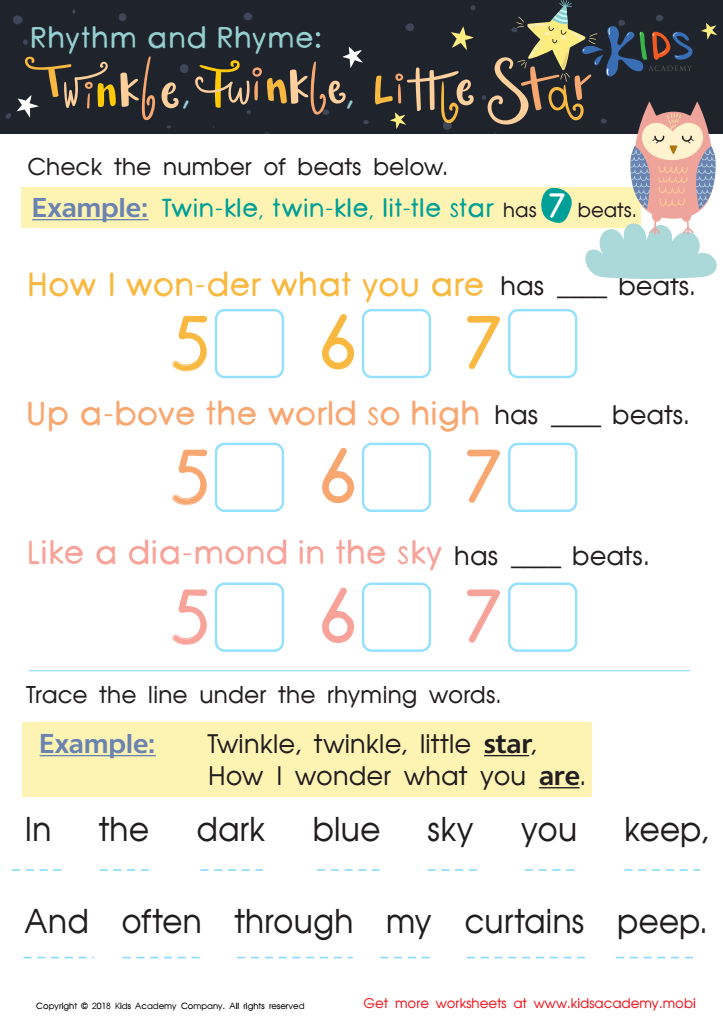

Rhythm and Rhyme: Twinkle, Twinkle, Little Star Worksheet
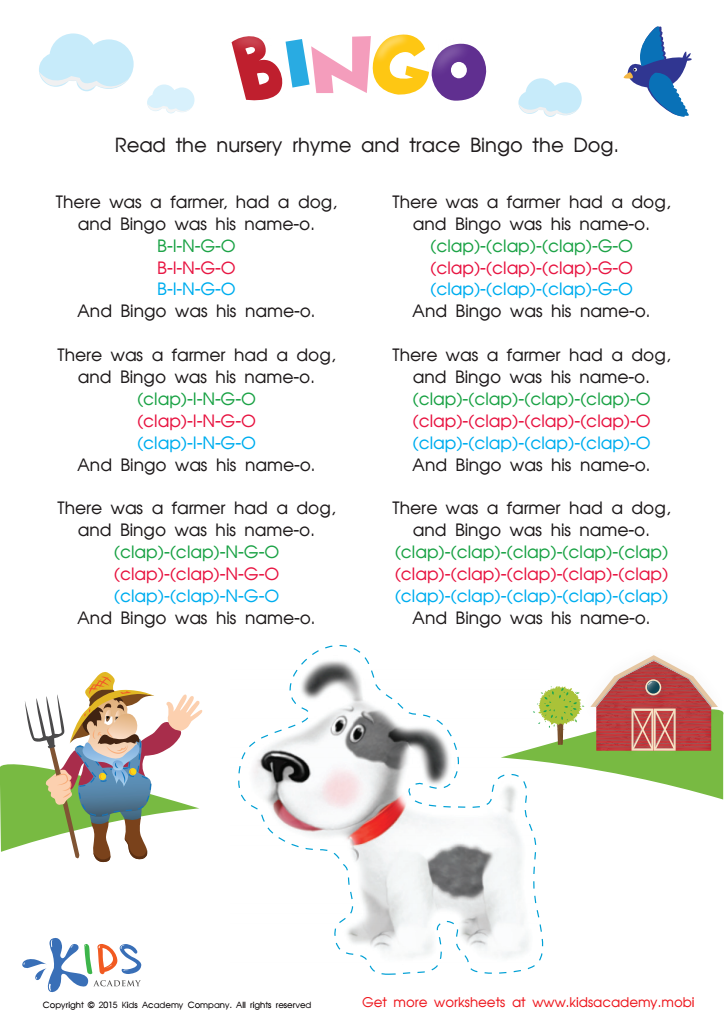

Nursery Rhymes: The Bingo Song Worksheet


The Five Little Monkeys Nursery Rhyme Worksheet
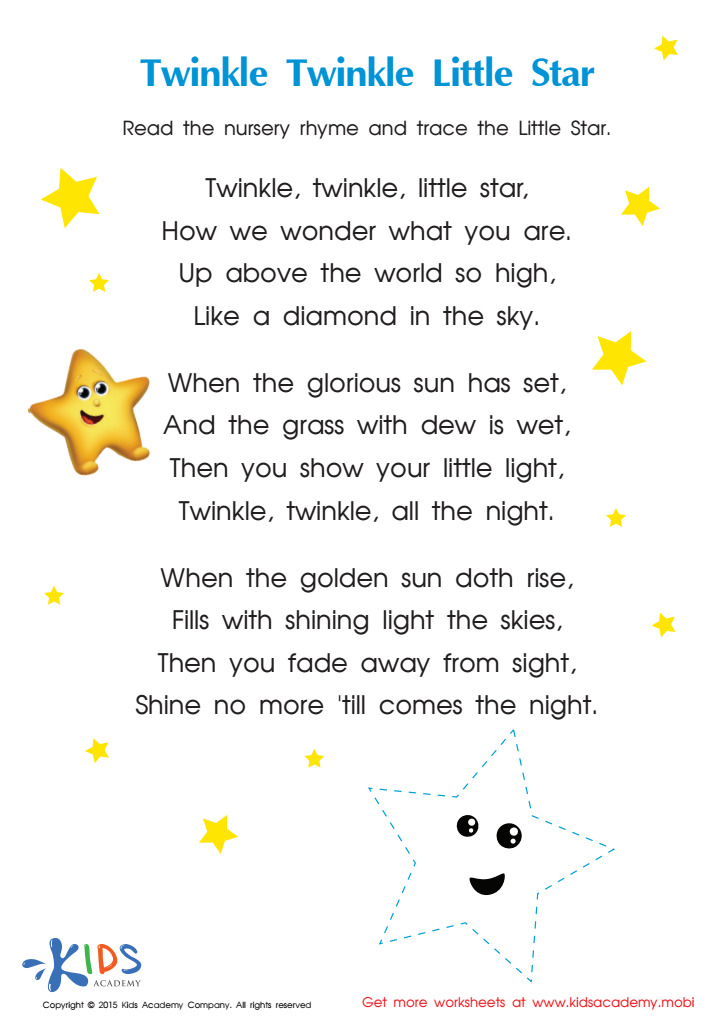

Nursery Rhymes: Twinkle Little Star Worksheet
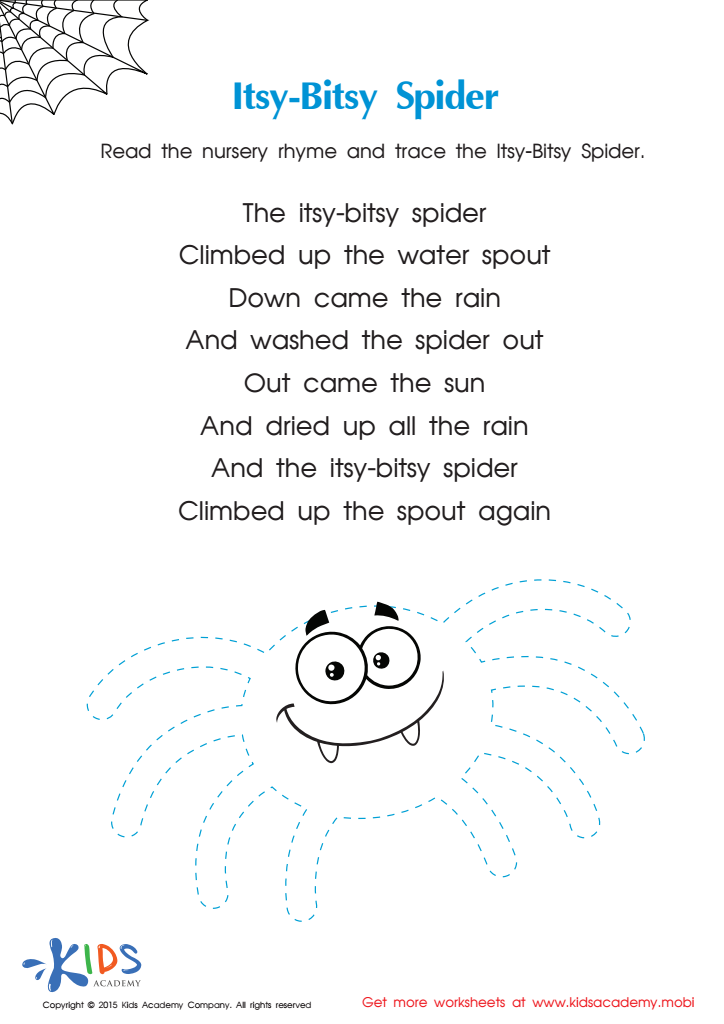

Itsy Bitsy Spider Nursery Rhyme PDF Worksheet
Nursery rhymes hold significant value for young children aged 3-7, and both parents and teachers should give them due attention for several compelling reasons. First, nursery rhymes enhance language development. Their rhythmic and repetitive nature helps children develop phonemic awareness, enabling them to recognize and produce a variety of sounds, an essential precursor to reading.
Moreover, these rhymes enrich vocabulary as children are exposed to a range of words and phrases, some of which they may not encounter in everyday conversation. This wide range of vocabulary lays the foundation for improved comprehension and expressive skills.
Nursery rhymes also promote cognitive development. The patterns and sequences in these rhymes aid in memory retention and recall, improving children's ability to remember and articulate sequences and stories. Furthermore, the themes and narratives often contained in nursery rhymes stimulate imagination and curiosity, encouraging cognitive and creative thinking.
From a social perspective, singing and reciting nursery rhymes provides opportunities for social interaction, cooperation, and bonding, whether among peers in a classroom or between parents and children at home. The joy and emotional connections fostered through these rhymes create positive relationships, benefits that extend well beyond childhood.
In conclusion, prioritizing nursery rhymes supports linguistic, cognitive, and social development in children, making them an essential tool in early education and parenting practices.

 Assign to the classroom
Assign to the classroom




.jpg)
